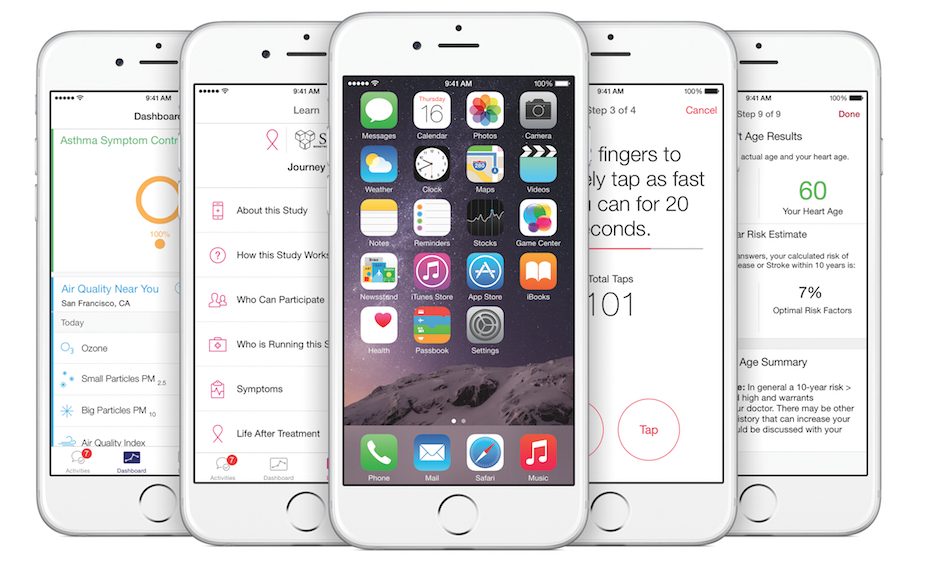Tim Cook said time and again that, for Apple, you are not the product. That’s to say Apple isn’t interested in harvesting your personal data with help of its devices and then sell it to third parties to generate revenue as some of its competitors do. But a new MIT Technology Review report reveals you and your data might be more important for Apple than you think. In fact, you might play an even more important role than you could ever imagine in Apple’s plans to make the iPhone an indispensable device.
DON’T MISS: You can spend $17,000 on a gold Apple Watch, or you can gold plate your Watch for $399
The publication learned from sources familiar with the matter that making medical studies widely available to both users interested in taking part in them, and to researchers looking to expand the reach of their studies, might be just one of the features of Apple’s recently released ResearchKit software framework. The company is apparently interested in more complex uses for its health initiative, including studying your DNA.
The company is already collaborating with U.S. researchers to launch iPhone apps that will let you test and then access findings about your DNA. You might then be able to share share the genetic information you obtain with third parties, including physicians or other research apps built with ResearchKit.
Apparently, DNA tests would be conducted in labs approved by Apple, and data would be hosted on servers controlled by scientists, but some of it could appear on a user’s iPhone once testing is done.
Apple plans to “enable the individual to show and share” DNA information with others, including organizers of specific medial studies, a person familiar with the matter revealed.
The company is working with scientists on at least two DNA-based studies that may be presented on stage at WWDC 2015. One of the studies, conducted by the University of California, San Francisco, would look at the causes of premature birth by combining DNA testing information with other data collected by the iPhones of expectant mothers. A second study would be conducted by Mount Sinai Hospital in New York.
These particular health-related features – letting users have their DNA tested for future and providing them an easy way of accessing their data – might turn the iPhone and other devices that can record health data and share it with HealthKit and ResearchKit apps into must-have products, both for researchers looking to expand the pool of subjects for certain studies and for patients interested in finding out more information about health and their existing and potential diseases.
In the future, genetic information that would be within the reach of the user, could further be used by all sorts of applications on smart devices. “Some people have ideas,” the publication writes. “Imagine you could swipe your genes at a drugstore while filling a prescription, getting a warning if you’re predicted to have a reaction to the drug. Or perhaps an app could calculate exactly how closely related you are to anyone else.”
The full report is available at the source link.




